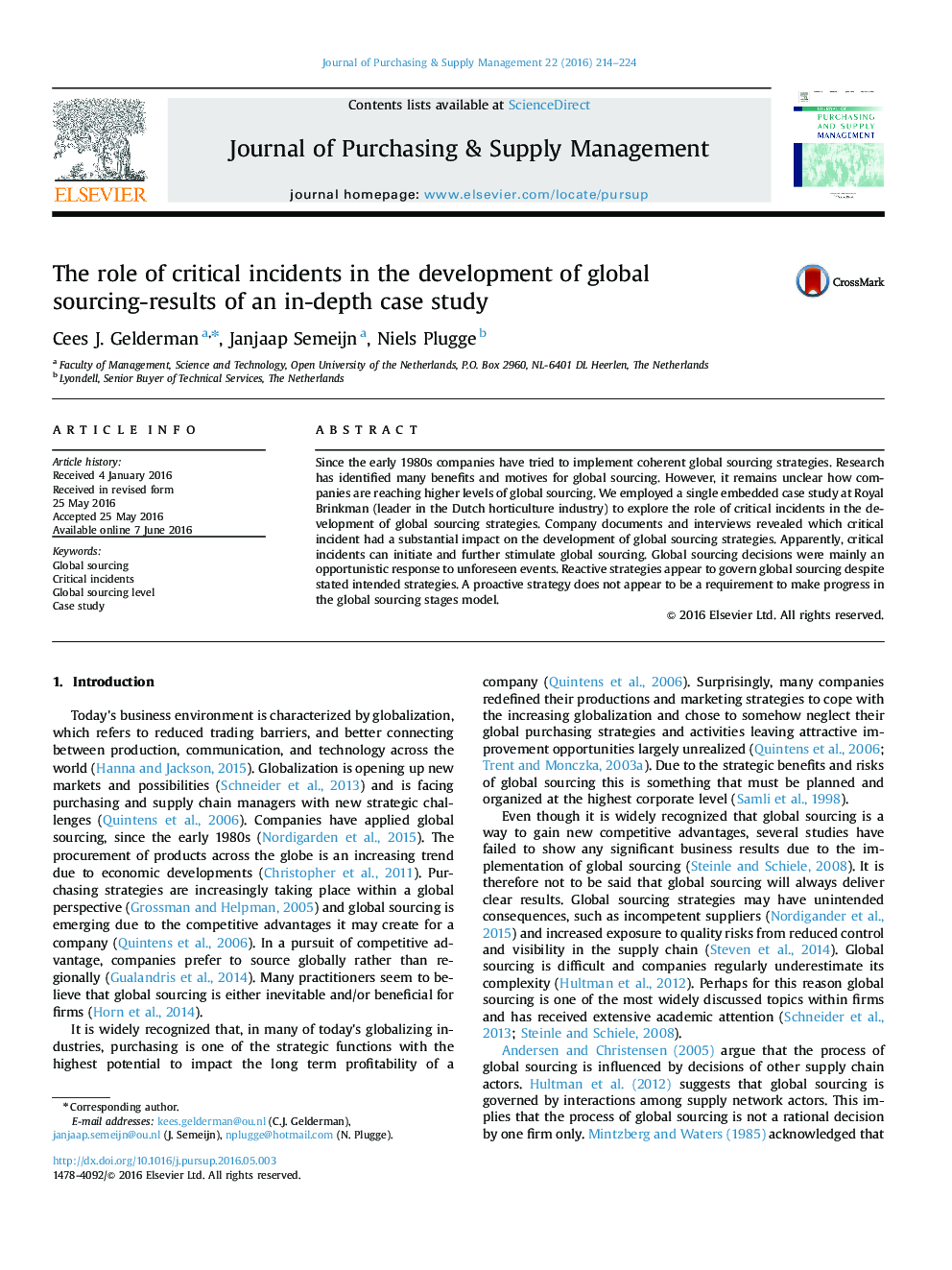| کد مقاله | کد نشریه | سال انتشار | مقاله انگلیسی | نسخه تمام متن |
|---|---|---|---|---|
| 1020699 | 1377749 | 2016 | 11 صفحه PDF | دانلود رایگان |
• The study shows the importance of critical incidents for global sourcing decisions.
• Critical incidents can initiate and further stimulate global sourcing.
• Having a corporate strategy and recognizing the benefits of global sourcing is not sufficient to bring about global sourcing.
• Supplier behavior and changing rules and regulations are sources of critical incidents.
• Reactive strategies appear to govern global sourcing despite stated intended strategies.
Since the early 1980s companies have tried to implement coherent global sourcing strategies. Research has identified many benefits and motives for global sourcing. However, it remains unclear how companies are reaching higher levels of global sourcing. We employed a single embedded case study at Royal Brinkman (leader in the Dutch horticulture industry) to explore the role of critical incidents in the development of global sourcing strategies. Company documents and interviews revealed which critical incident had a substantial impact on the development of global sourcing strategies. Apparently, critical incidents can initiate and further stimulate global sourcing. Global sourcing decisions were mainly an opportunistic response to unforeseen events. Reactive strategies appear to govern global sourcing despite stated intended strategies. A proactive strategy does not appear to be a requirement to make progress in the global sourcing stages model.
Journal: Journal of Purchasing and Supply Management - Volume 22, Issue 3, September 2016, Pages 214–224
